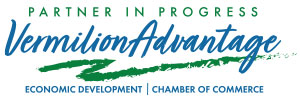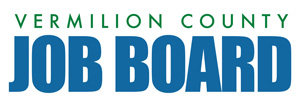What is Tax Increment Financing (TIF)?
Tax increment financing, or TIF, is an economic development and revitalization tool available to Illinois municipalities through an act of the Illinois State Legislature known as the Tax Increment Allocation Redevelopment Act (65 ILCS 5/11-74.4).
TIF is designed to remove blight and encourage private investment into areas that would otherwise not see new investment.
New businesses mean more jobs, more customers, and, in turn, more private investment.
TIF designation also helps retain existing businesses that might otherwise find more attractive options elsewhere. The jobs and additional investment — private and public — mean more money for the community.
TIF also helps to overcome the extraordinary costs that often prevent development and private investment from occurring on environmentally contaminated properties, and it is also used where infrastructure is inadequate to meet the needs of development.
TIF Maps
The Campus Corridor TIF Area encompasses an area of approximately 20 acres and is located along East Main St. near Danville Area Community College.
The Midtown TIF Redevelopment Project Area encompasses an area of approximately 158 acres and is generally bounded by Fairchild on the North, Seminary on the South, Gilbert on the West and Hazel & Jackson Streets on the East.
The Western Gateway TIF Area is to the South of Midtown and encompasses an area of approximately 45 acres and is generally bound by Logan Ave. on the West, North St. on the North, Jackson St. on the East, and the Vermilion River on the South.
Utility Tax Exemption
The Public Utilities Act 220 ILCS 5/9-222.1, as amended, and the Telecommunications Excise Tax Act 35 ILCS 630/2(a)(5), as amended, allows a business enterprise certified by DCEO as making an investment in a zone that either creates a minimum of 200 full-time equivalent jobs in Illinois or retains a minimum of 1,000 full-time jobs in Illinois, a 5 percent state tax exemption on gas, electricity and the Illinois Commerce Commission .1 percent administrative charge and excise taxes on the act or privilege of originating or receiving telecommunications.
Local units of government may also exempt their taxes on gas, electricity and water.
To be eligible for this incentive, DCEO must certify that the business makes an investment of at least $5 million in an enterprise zone and has created a minimum of 200 full-time equivalent jobs in Illinois or makes an investment of at least $20 million in an enterprise zone and has retained a minimum of 1,000 full-time jobs in Illinois. A business must submit an application to DCEO documenting the eligible investment and that the job creation or job retention criteria has been met.
For purposes of this incentive, eligible investment may be either: 1) investments in qualified property as defined in the Enterprise Zone Investment Tax Credit (described on Page 13 of this publication); or, 2) non-capital and non-routine investments and associated service costs made for the basic construction, renovation or improvement of qualified property including productive capacity, efficiency, product quality or competitive position. Regular maintenance and routine expenditures are not included.


